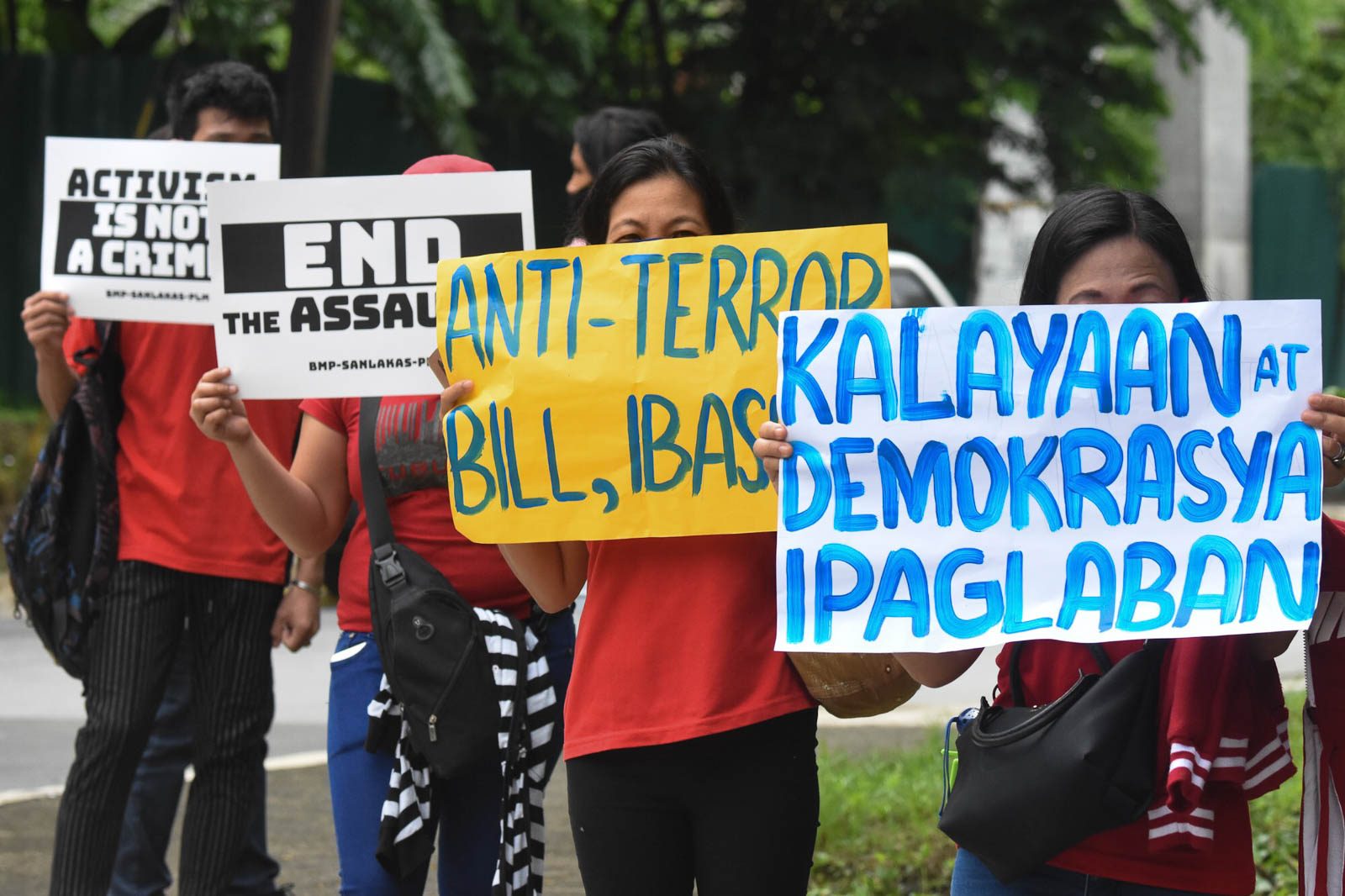SUMMARY
This is AI generated summarization, which may have errors. For context, always refer to the full article.

MANILA, Philippines – Human rights groups condemned President Rodrigo Duterte and the anti-terror law which poses “dangerous” threats to Philippine democracy.
Karapatan said Duterte’s latest move is an act of desperation against growing opposition to the “fascist rule.”
“This monstrous piece of legislation is, without any doubt, the final puzzle piece in Duterte’s Marcosian delusions and its enactment into law has serious and far-reaching implications not only on our work as human rights defenders, but also on the public who stands to be terrorized by this law,” Karapatan said in a statement.
Duterte signed the anti-terror law on Friday, July 3, despite widespread opposition from the public. Human rights and law groups blast the dangerous provisions of the law, warning against possible repercussions on legitimate dissent in the country.
Karapatan urged the public not to cower and let Duterte take away Filipinos’ rights and freedoms.
“We now enter a dark night full of state terror, but we will not cease to resist,” the group said.
‘Into an abyss’
International watchdog Human Rights Watch (HRW), meanwhile, called the latest development a “stealth declaration of martial law,” adding that the new law “significantly worsens” the Philippine situation already suffering from the violent anti-illegal drug campaign, among others. (READ: Duterte’s war on dissent)
“By signing the anti-terrorism bill into law, President Duterte has pushed Philippine democracy into an abyss,” HRW deputy Asia director Phil Robertson said.
“The anti-terrorism law will give a green light to the systematic targeting of political critics and opponents, as well as ordinary Filipinos who dare to speak out,” he added.
Amnesty International, meanwhile, said that the Duterte administration has “effectively crafted a new weapon to brand and hound any perceived enemies of the state.”
“Under Duterte’s presidency, even the mildest government critics can be labelled terrorists,” Amnesty Asia-Pacific regional director Nicholas Bequelin said. “The approval of this law grants the government excessive and unchecked powers.”
As the anti-terror law is yet again another example of the worsening situation in the Philippines, Bequelin urged the United Nations to launch a formal investigation to target the ongoing widespread and systematic violations.
Challenge the law
Groups are concerned over several provisions of the law, including the prolonged detention without judicial warrant and the lack of accountability for authorities in the event of “delay in the delivery of detained persons to the proper judicial authorities.”
The Commission on Human Rights on June 2 warned against the broad definition of what constitutes as terrorism, fearing that it could lead to abuse.
United Nations human rights chief Michelle Bachelet on June 30 urged Duterte to refrain from signing the bill as it “heightens our concerns about the blurring of important distinctions between criticism, criminality, and terrorism.”
Legal groups, meanwhile, previously said that they are ready to challenge the anti-terror law before the Supreme Court. Retired senior associate justice Antonio Carpio also said the law can be questioned in court right away. – Rappler.com
Add a comment
How does this make you feel?
There are no comments yet. Add your comment to start the conversation.